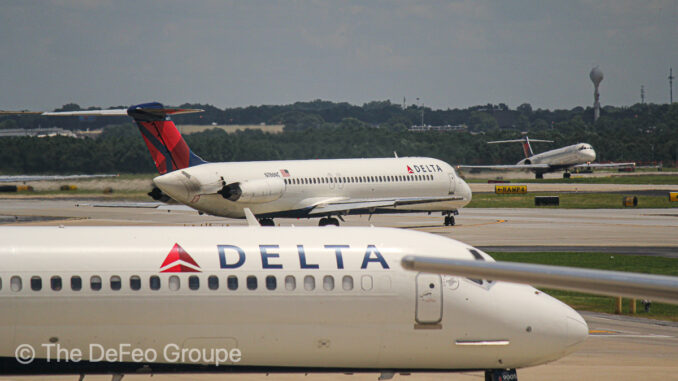
(The Center Square) — Georgia officials this month allocated more than $7.6 million for two airport projects in the southern part of the state.
The Georgia Department of Transportation approved more than $5.4 to rehabilitate the taxiway and runway construction at the Columbus Airport. The money is from the fiscal 2024 Airport Aid Program.
“The rehabilitation of the taxiway and the creation of a new runway at Columbus Airport will guarantee a greater ease of transportation throughout the city and state,” state Sen. Ed Harbison, D-Columbus, said in an announcement.
According to an Oct. 3 interoffice memo from GDOT’s Division of Intermodal, the project includes more than $3.1 million in federal funds and $661,761 in local funds. GDOT is pulling more than $1.6 million from the Capital Outlay-Airport Aid Program detail of the Intermodal Transfer Facility fiscal 2024 budget.
Additionally, GDOT announced a contract with the city of Montezuma to build a tarmac at the Dr. C.P. Savage Sr. Airport. In an announcement, Harbison said the project would “enhance Montezuma’s transportation infrastructure” and allow the airport “greater capacity to handle increased air traffic.”
GDOT approved the creation of the tarmac on May 23, 2022, as a part of the fiscal 2023 Airport Aid Program. However, the nearly $2.2 million project was only recently announced.
An Oct. 3 GDOT memo indicates the project includes $1.6 million in state funds, which appears to be from a Federal Aviation Administration fiscal 2021 grant. The remaining money will come from the federal government ($8,153) and the local government ($546,955).
The state tapped Duluth-based Holt Consulting Co. for both projects.
Marc Scribner, a senior transportation policy analyst for the Reason Foundation, said near-zero interest rates and money from federal programs such as the Infrastructure Investment and Jobs Act opened funding for federal tax dollars for local projects. However, a burgeoning federal debt could threaten unrestrained spending indefinitely.
“Which do you think they’re going to cut first, the Social Security and Medicare payments or spending on your favorite bridge project or airport project?” Scribner said. “I think [we] have to start thinking about this sooner rather than later because the gravy train that we’ve had, especially in the last 15 years, is coming to an end. We’re not on a sustainable course.
“I think we need to get back to basics. Who benefits the most from these projects? The people who use them,” Scribner added. “If those are the primary beneficiaries, they should probably be paying for, if not all, the vast majority of the maintenance and operations costs, as well as the capital improvements. We’ve got to get back to a ‘users pay, users benefit’ principle.”
This article was published by The Center Square and is republished here with permission. Click here to view the original.




